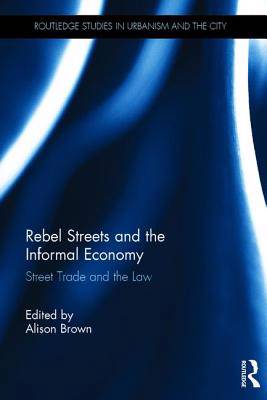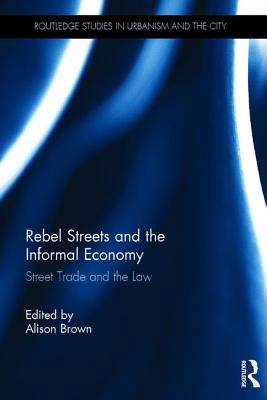
- Retrait gratuit dans votre magasin Club
- 7.000.000 titres dans notre catalogue
- Payer en toute sécurité
- Toujours un magasin près de chez vous
- Retrait gratuit dans votre magasin Club
- 7.000.0000 titres dans notre catalogue
- Payer en toute sécurité
- Toujours un magasin près de chez vous
Rebel Streets and the Informal Economy
Street Trade and the Law
Description
This book explores the challenges faced by informal economy actors, with a particular focus on street vending. It offers a conceptual framework for relationship between law, rights, and space for the informal economy, the contest between traditional, modernist and rights-based approaches to development, and impacts on the urban working poor. Drawing on a range of global case studies, the chapters explore how vendors are staking claim to urban rights. This book argues for a reconceptualization of legal instruments to provide a rights-based framework for urban work that recognises the potential for supportive governance of urban informal economies, the scope for collective management of urban resources, and the social value of public space as a site for urban livelihoods.
Spécifications
Parties prenantes
- Editeur:
Contenu
- Nombre de pages :
- 266
- Langue:
- Anglais
- Collection :
Caractéristiques
- EAN:
- 9781138189744
- Date de parution :
- 01-03-17
- Format:
- Livre relié
- Format numérique:
- Genaaid
- Dimensions :
- 156 mm x 234 mm
- Poids :
- 553 g

Les avis
Nous publions uniquement les avis qui respectent les conditions requises. Consultez nos conditions pour les avis.





